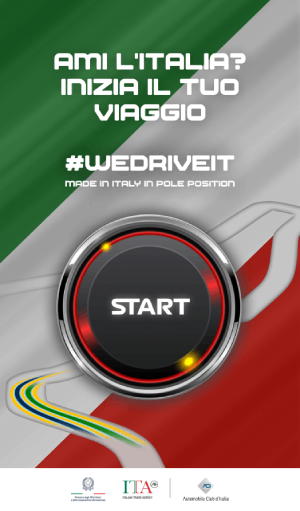 by Guido Stratta
by Guido Stratta
2020 was a life-changing year for all of us. The pandemic led to profound changes in our understanding of life. This period has presented us with new questions and challenges, which are inexorably reflected in the way that we think about work. Many companies around the world have begun to rethink their operating models.
In times like these, it is essential to make the most of the opportunities for reflection presented by the crisis we are living through. Many companies are realizing – some after over 100 years – that established ways of operating and organizing have become outdated in a very short span of time. People working in these companies may have been initially disconcerted, but have discovered that they are able to face the new reality with great courage and responsibility. They have mastered smart working and the associated autonomy, and have become even more digitized.
Now we must capitalize on these experiences and incorporate the lessons we have learned into our work. We are all showing great resilience and responsibility on a professional level, which is rewarded by trusting, caring and listening to each other in our interpersonal relationships. Once this terrible pandemic is defeated, it would be unthinkable for people to revert to their former ways of working.
Now is the time for companies to rethink the way they work. To do this, it is extremely important to be able to combine the value of the interpersonal aspects of work with what we have learned in this particular period. In this context, all the things that can be done from a distance, avoiding the stress of traveling to the office and reducing pollution, will continue to be done from home, co-working spaces, new areas and “Hub Quarter” offices – with no individual offices, but with ample space for collaboration and sharing.
There will also be periods of high relational quality, where projects can be launched, brainstorming can take place and departmental meetings can be held, once a month or more, in order to build team spirit and a sense of community and inclusion. People will have access to the office as and when they need it, booking in advance and showing the same sense of responsibility that they have shown during this period.
The way companies work will be rewritten, as is currently happening in the Group where I am Head of People and Organization; we will be focusing even more on the specific needs of our internal and external customers, with the aim to simplify the “machine”. We will also be looking to establish relationships with all start-ups, new developments and innovations, in order to be at the forefront of change, which today is essential.
In order to move forward in this new scenario, it is crucial to determine how to redesign the relationship between leadership and collaboration, between people’s talents and business areas. Corporate culture will be increasingly based on a concept of “soft leadership”, which aims to empower people using soft skills to be coupled with the hard skills that companies already possess.
We will move from “me” to “we”.
The concept of leadership is moving away from “command and control” – which is all about achieving results – towards a leadership model that is attentive to relationships, trust and respect for each person’s talents, while continuing to focus on achieving objectives.
 The focus will be on “caring for people”, listening and helping them seize the opportunities presented by the transformation that we are experiencing. This will help create an increasingly peaceful working environment in which people feel empowered and autonomous. Caring for people starts by having an empathetic connection with them: the ability to listen and to recognize their talents, with the knowledge that all people are gifted.
The focus will be on “caring for people”, listening and helping them seize the opportunities presented by the transformation that we are experiencing. This will help create an increasingly peaceful working environment in which people feel empowered and autonomous. Caring for people starts by having an empathetic connection with them: the ability to listen and to recognize their talents, with the knowledge that all people are gifted.
The role of the manager is therefore transformed into the job of accompanying people on their professional path, enabling each person to put their passions into play, and helping people and teams to position themselves in a framework that allows their talents to flourish.
In recent times, work and passion have rarely gone hand-in-hand and it was widely believed that only a few people had the privilege of combining the two. However, the extremely dramatic experience that we are all living through has also given us new insights. The issue of combining work and passions is related to the ability to move towards this goal over time: if a person knows where they need to go, then it paves the way for them to foster relationships and contacts within organizations that can lead them towards their passions.
Nowadays, people live in increasingly flexible worlds with less hierarchy. The target environment is the framework in which they can tap into their talent and an organization that provides the conditions to do so. The future of organizations will be this digital-analog (digi-logic) mix, facilitated by the simplification of business processes and procedures, and made up of trust, responsibility, listening, passion and new leadership methods. This is Enel’s vision of the new way to be.
(Associated Medias) Tutti i diritti sono riservati







